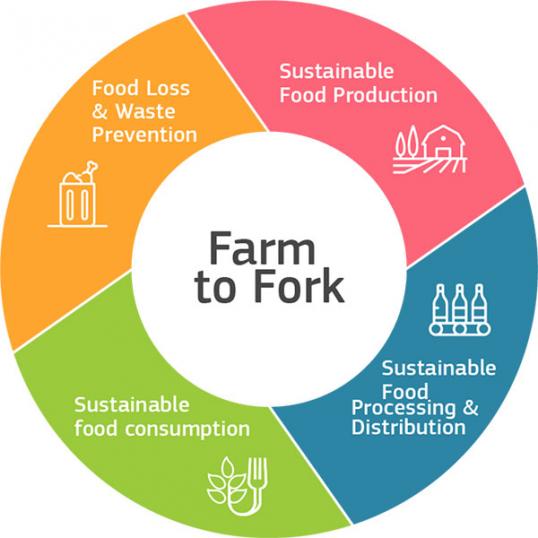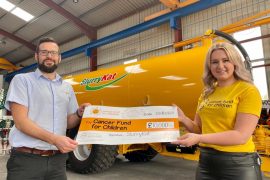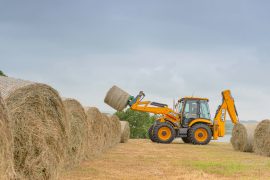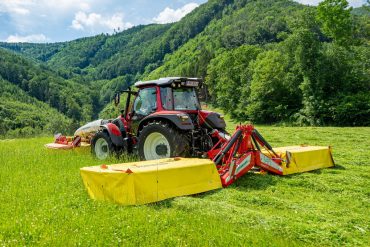Food chain actors all agree with the main principles set out in the Farm to Fork strategy and are fully aware that constant and substantial improvement must be made to ensure a more sustainable approach for our food systems. Nevertheless, several recently published studies on the Farm to Fork strategy indicate that the current targets, if implemented as proposed, will come at a significant cost for EU farmers and the viability of the entire European agribusiness culture.
The time for political messages around the Farm to Fork strategy has passed. It is now time to analyse the data currently available. In recent months, several key reports and studies have tried to assess and measure the impacts of the targets set by the European Commission when presenting the Farm to Fork and Biodiversity strategies in May 2020.
Studies conducted by the USDA1, the HFFA Research2, the Joint Research Centre of the EU (JRC)3, Kiel University4 as well as Wageningen University and Research (WUR) all conclude that there are several significant impacts, trade-offs and blind spots that urgently need to be considered by policymakers in the EU (and beyond).
For example:
- The JRC study predicts that the expected decrease of between 40 and 60% of GHG emissions from European agriculture stemming from the implementation of Farm to Fork targets will lead to outsourcing European agricultural production, including its emissions to third countries.
- The Kiel University study projects that Europe could become a net food importer, in direct contradiction with the open strategic autonomy promoted by the European Commission during the COVID crisis.
- The USDA study concludes that the targets set out in the Farm to Fork strategy could lead to food insecurity for 22 million people.
Why is Europe not looking at the data?
Each of these studies, using different methodologies, with different focal points and limitations all complement each other. They all reach the same conclusions. EU agricultural production will decrease – in some areas and for some products quite drastically. According to the latest WUR study showing an average production decline for the cumulative impact of targets of between 10 – 20%[1] with up to 30% drop for certain crops.
As regards livestock production, the study from the University of Kiel, points to a 20% reduction in EU beef production and a 17% reduction for pork production on average. A further WUR policy paper (soon to be published) confirms an overall decrease in beef, pig and dairy production, leading not only to a price increase for EU consumers but also shows questionable effects on livestock farmers’ incomes.
The data clearly points to impacts on trade, on farmers’ incomes and ultimately on consumer prices. Changing the food system under these conditions will be more difficult, and imposing consumption taxes, as proposed by the European Parliament, could make it socially unjust.
All the actors in the agri-food chain are aware of the environmental and climate challenges we are facing today. We are all committed to playing our part in the fight to mitigate the negative effects of climate change. European agricultural production is among the most resource and environmentally friendly in the world. Nevertheless, European producers believe that, with innovation and further support at the forefront of EU agricultural policy, farmers will continue to produce in an even more sustainable manner. We acknowledge the expectations of society and policymakers within the realm of food production. But “non-data based political targets” will have deleterious effects on European agriculture. We must build solution-oriented policies, based on the data we have to hand, with innovation as their cornerstone.
In order to start talking about solutions, we need to have a common understanding of the challenges we face in pursuing our Farm to Fork objectives. This common understanding should be based on a comprehensive and cumulative impact assessment conducted by the European Commission. The most recent Wageningen study, with its different scenarios, is clearly showing that assessing the effects of Farm to Fork targets in isolation, as the Commission seems to envision doing from now on, will only give a partial picture of the cumulative reality faced by farmers and agri-food players on the ground.
We are as eager as the Commission to end this debate on the necessity of carrying out a cumulative impact assessment. We call for a comprehensive assessment because we want to understand where problems are likely to arise, so that we can discuss the potential solutions.
Europe’s food production model, spearheaded by the Common Agricultural Policy, has been one of the biggest successes of the European Union. We do not understand the apparent attempt to countermand our progress and disregard our successes at a time when our trading partners are already talking about filling the production gaps left vacant by Europe. In addition, if EU production decreases, as is clearly expected by all the researchers who have assessed the impact of the Commission’s current proposals, then EU imports of agricultural raw materials and ingredients are bound to increase significantly, thus making the EU dependent on imports to feed its population – thus creating several political and food safety risks for European consumers.
It is time the European Commission conducts a holistic impact assessment. The Farm to Fork deadline is looming. Eight years for the agricultural sector is not that long. We urgently need to see concrete proposals and a broader discussion around the choices we are making – but it needs to be based on better data.





